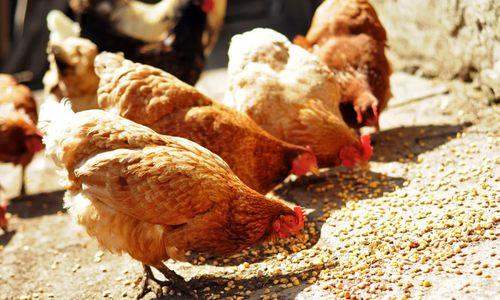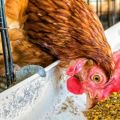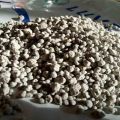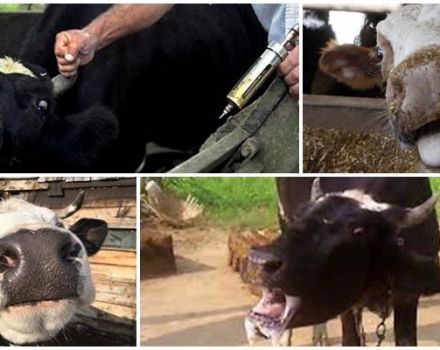How to give liquid and capsule fish oil to laying hens, dosage rules
Every novice owner of a poultry farm should know about the need for fish oil for laying hens, how to give the drug correctly. A balanced diet provides poultry with normal development, rapid weight gain, and increased egg production. A dietary supplement is one of the simple and effective solutions to avoid vitamin deficiency and increase resistance to disease.
Can chickens be given liquid fish oil?
Fish oil is an irreplaceable vitamin supplement in the diet when breeding birds. It is most often used in liquid form, it is possible to use crushed capsules.
In its pure form, the drug cannot be added to the feed. It is stirred in warm water in a 1: 2 ratio for even distribution. The solution is added to the finished feed, mixed thoroughly to prevent overdose. When using specialized compound feed, the amount of the drug is reduced to avoid oversaturation.
Important! Calciferol in liquid form improves the absorption of calcium, which has a beneficial effect on the productivity of laying hens.

Composition and form of release
The drug is available in the form of gelatin-coated capsules. It also exists in liquid form in dark bottles with a capacity of 100 and 500 milliliters.
The food supplement is obtained from the liver and internal organs of cod or other marine fish. The drug looks like an oily yellow liquid with a specific fishy odor.
The supplement contains useful vitamins and compounds:
- vitamins A (retinol), D (colecalciferol), E;
- polyunsaturated fatty acids omega 3 and omega 6;
- docosahexagenic and eicosapentaenoic fatty acids,
- essential trace elements - iodine, bromine, phosphorus and sulfur compounds.
All components are natural compounds and are completely absorbed by the body.

Benefits and characteristics
Fish oil is a natural vitamin complex containing essential amino acids and trace elements necessary for both chickens and adult chickens. Useful properties of the drug:
- activates the body's immune defenses, increases resistance to pathogenic microbes;
- prevents the development of rickets due to calciferol deficiency;
- improves egg production;
- strengthens the musculoskeletal system of broilers;
- strengthens the cardiovascular system of birds, reducing cholesterol and triglycerides, strengthens the walls of blood vessels;
- reduces the risk of gastrointestinal diseases, anemia, allergic reactions;
- reduces the percentage of mortality of young chickens.
The vitamin complex increases the absorption of calcium and magnesium in the body, promotes the synthesis of red blood cells, and reduces inflammation. With regular use of the supplement in chicken, the general condition of the body improves, and immunity to common diseases is strengthened.
A lack of vitamin D can lead to serious illness. Signs of vitamin deficiency in chickens aged 2 to 6 weeks:
- developmental delay, uneven growth;
- weakness, loss of appetite;
- manifestation of rickets;
- deformation of the bones.
Symptoms of a lack of calciferol in adults:
- weakness of the limbs;
- softening of the beak;
- decrease in productivity;
- the appearance of eggs without shell.
These manifestations are especially noticeable in the winter-spring period against the background of general avitaminosis.

How and when to give fish oil to chickens
The drug is added to the mash in the following order: seven days in a row, then the week is skipped. In the summer-autumn period, when the bird has the opportunity to nibble the grass, receive portions of ultraviolet radiation, vitamin supplements can be omitted. Poultry kept in cages all year round should be supplemented with vitamins regularly.
Chickens
The drug is introduced into the diet of chickens from the fifth day of life. The initial dosage of complementary foods with fish oil for babies is 0.2 milliliters of the drug per head. As the growth progresses, the amount of the drug is adjusted to 0.5 milliliters per pullet.
If chicks are taught to supplement from an early age, it will be easier for them to get used to the specific taste and smell in the feed.

Hens
The initial dose of the vitamin supplement for laying hens is 0.2 milliliters. It is necessary to start with a small dose so as not to provoke an upset stomach in the bird. Gradually, the amount of the drug is adjusted to 0.5 milliliters per day. Experienced farmers use the dosage: half a teaspoon of the additive per 1 kilogram of porridge.
A natural preparation not only increases egg production, but also improves the quality of eggs, the yolk becomes bright - orange.

For broilers
Broilers are entitled to double vitaminization. Chickens are given 0.2 milliliters per day, gradually increasing the dose to 1 milliliter. Adult broilers are given up to 5 milliliters per day, depending on the weight of the bird. The meat of chickens receiving the vitamin supplement becomes more tender and nutritious. If the poultry is being prepared for slaughter, the fish oil should be stopped for at least a week to avoid the fishy taste in the meat.

Contraindications
There are no contraindications for taking the drug. Side effects occur when the dosage of the medication is violated or when the supplement is used with an expired duration. Adverse reactions can occur due to improper storage of the vitamin supplement.
Possible diarrhea, deterioration in general health in birds.

Shelf life and storage conditions
The drug should be stored in a refrigerator or other cool dark place. The sun's rays lead to oxidation of the product: vitamin A becomes useless, and vitamin D becomes toxic. The bottle must be tightly closed. The shelf life is one year from the date of manufacture.
The supplement can be purchased at your regular pharmacy, pet store, or veterinary pharmacy.
Fish oil is an unrivaled source of vitamins A and D for domestic birds. Taking a vitamin supplement is especially indicated in the winter-spring period, during short daylight hours, when the need for retinol and calciferol increases.









